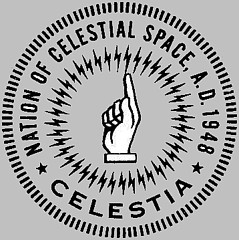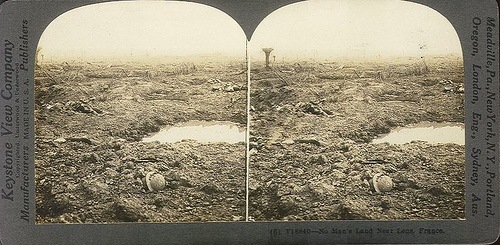“Actors are crap.” — John Ford
Extra Credit
On Sept. 15, 1963, at the height of the racial violence in Little Rock, a Miami schoolteacher forwarded the following essay to Dwight Eisenhower. Russell is blind.
How to Stop Trouble
By Leah Russell, age 12If I were president, I would have all the children blindfolded and send them to school. I would also send some of the colored children and have them blindfolded. I think that all of them would have a lot of fun and there wouldn’t be any fights. Probably after they got to know each other there wouldn’t be any more fights or anything like that.
Eisenhower wrote back, asking the teacher to tell Leah that “she has already grasped one of the great moral principles by which we all should live.”
Orbison Illusion

An optical illusion. The diamond and the bounding rectangle are square, not distorted, as they appear.
In a Word
xanthocomic
adj. yellow-haired
Unquote
“Writer’s block is a fancy term made up by whiners so they can have an excuse to drink alcohol.” — Steve Martin
Galactic Dibs

On New Year’s Day, 1949, James Mangan went to the Cook County recorder of deeds and registered his own country. The Nation of Celestia, he said, encompassed all of outer space. He was claiming it, as “founder and first representative,” to prevent anyone else from establishing political hegemony there.
Mangan wasn’t shy about it, either. Later that year he informed the United States, the Soviet Union, the United Kingdom, and the United Nations that he was banning atmospheric nuclear tests, and he sent angry letters to the Americans and the Soviets when their space flights infringed on his “territory.” He even briefly got the U.N. to add the Celestian flag to those of its member nations.
Still, the idea never caught on, it largely died with its founder. All that’s left are some stamps, coins (“celestons”), and the titles Mangan gave to his grandsons: Glen Stump, “Duke of Selenia,” Dean Stump, “Duke of Mars,” and Todd Stump, “Duke of the Milky Way.”
Don’t Blink
The world’s slowest science experiment is the “pitch drop experiment” at the University of Queensland. In 1927, physics professor Thomas Parnell poured some pitch into a funnel to see how long it would take to drip out. Pitch is pretty viscous: When Parnell died in 1948, only two drops had fallen.
The experiment is still going on. The eighth drop fell on Nov. 28, 2000, allowing experimenters to calculate that the pitch has a viscosity about 100 billion times that of water.
Space to Let
Times are hard everywhere, but shed a tear for the Kongo Gumi Company of Osaka, Japan. When it closed its doors in January, the construction firm had been operating continuously for 1,400 years. The family business built its first temple in the year 578 and could trace its leadership through 39 generations.
No Man’s Land

Stereocard of no man’s land near Lens, France, during World War I.
Just as I was beginning to forget there were such things as trenches and shrapnel and snipers, they told me a horrible story of two Camerons who got stuck in the mud and sucked down to their shoulders. They took an hour and a half getting one out, and just as they said to the other, “All right, Jock, we’ll have you out in a minute,” he threw back his head and laughed, and in doing so got sucked right under, and is there still. They said there was no sort of possibility of getting him out; it was like a quicksand. …
They told me another story of a man in the Royal Scots who was sunk in mud up to his shoulders, and the officer offered a canteen of rum and a sovereign to the first man who could get him out. For five hours thirteen men were digging for him, but it filled up always as they dug, and when they got him out he died.
— Anonymous, Diary of a Nursing Sister on the Western Front, 1914-1915
Writer’s Block
A limerick fan from Australia
Regarded his work as a failure:
His verses were fine
Until the fourth line.
